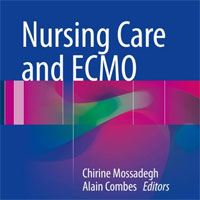Tag: sepsis
Vitamin C for Sepsis
Dr. Alpha A. Fowler of Virginia Commonwealth University presented findings from the CITRIS-ALI trial that studied the role of vitamin C in patients with septic ARDS. The findings were presented @ESICM in Berlin and have just... read more
XueBiJing Injection vs. Placebo for Critically Ill Patients with Severe Community-Acquired Pneumonia
In critically ill patients with severe community-acquired pneumonia, XueBiJing injection led to a statistically significant improvement in the primary endpoint of the pneumonia severity index as well a significant improvement... read more

ICU Admission Source as a Predictor of Mortality for Patients With Sepsis
Sepsis is the leading noncardiac cause of intensive care unit (ICU) death. Pre-ICU admission site may be associated with mortality of ICU patients with sepsis. This study quantifies mortality differences among patients... read more

Corticosteroids for Children with Septic Arthritis
Researchers conducted a review of the effects of corticosteroids given in addition to antibiotics to children with septic arthritis. Evidence was sought until April 2018. After searching for all relevant studies, reviewers... read more

Presentations from WSD Supporter Meeting at the World Congress of Intensive Care in Melbourne
On Wednesday, October 16th, 2019, World Sepsis Day Supporters from all around the globe came together at the World Congress of Intensive Care in Melbourne, Australia, for a World Sepsis Day Supporter Meeting. Simon Finfer,... read more

Norepinephrine Shortage and Mortality Among Patients With Septic Shock
Drug shortages in the United States are common, but their effect on patient care and outcomes has rarely been reported. This cohort study evaluated whether a national shortage of norepinephrine in the United States in 2011... read more

Circulating Gasdermin-D in Critically Ill Patients
This is the first study to demonstrate that the active form of GSDM-D is found exclusively in the circulation of septic critically ill patients raising its potential as an agent of dysregulated immunity in systemic infection.... read more
Vitamin C for Sepsis Suffers a Setback. Or a Step-Forward. It’s Complicated
The CITRIS-ALI study found no difference in primary outcomes among patients with sepsis treated with vitamin C versus placebo. But there was a difference in a secondary outcome - overall mortality. When it comes to sepsis... read more

Effect of Vitamin C Infusion on Organ Failure in Patients With Sepsis and ARDS
In this preliminary study of patients with sepsis and Acute Respiratory Distress Syndrome (ARDS), a 96-hour infusion of vitamin C compared with placebo did not significantly improve organ dysfunction scores or alter markers... read more

Candida Bloodstream Infection Under Veno-arterial ECMO Therapy
Cavayas et al. recently described invasive fungal infections in patients under extra-corporeal membrane oxygenation (ECMO) of the Extracorporeal Life Support Organization registry. They found a 1.2% prevalence of Candida... read more

Accuracy of Quick Sequential Organ Failure Assessment Score to Predict Sepsis Mortality
Overall, quick Sequential Organ Failure Assessment score outperforms systemic inflammatory response syndrome in predicting sepsis outcome, but quick Sequential Organ Failure Assessment score has relative strengths/weaknesses... read more

Blood Culture Results Before and After Antimicrobial Administration in Patients With Severe Sepsis
Among patients with severe manifestations of sepsis, initiation of empirical antimicrobial therapy significantly reduces the sensitivity of blood cultures drawn shortly after treatment initiation. Of 3,164 participants... read more

Refractory Septic Shock: Our Pragmatic Approach
Despite timely intervention, there exists a small subgroup of patients with septic shock who develop progressive multi-organ failure. Seemingly refractory to conventional therapy, they exhibit a very high mortality. Such... read more

Neonatal Early-Onset Sepsis Evaluation
Twelve years ago, we began a National Institutes of Health–funded study of neonatal early-onset sepsis (EOS) whose goal was to develop multivariate predictive models that could be used by clinicians to evaluate a newborn’s... read more








